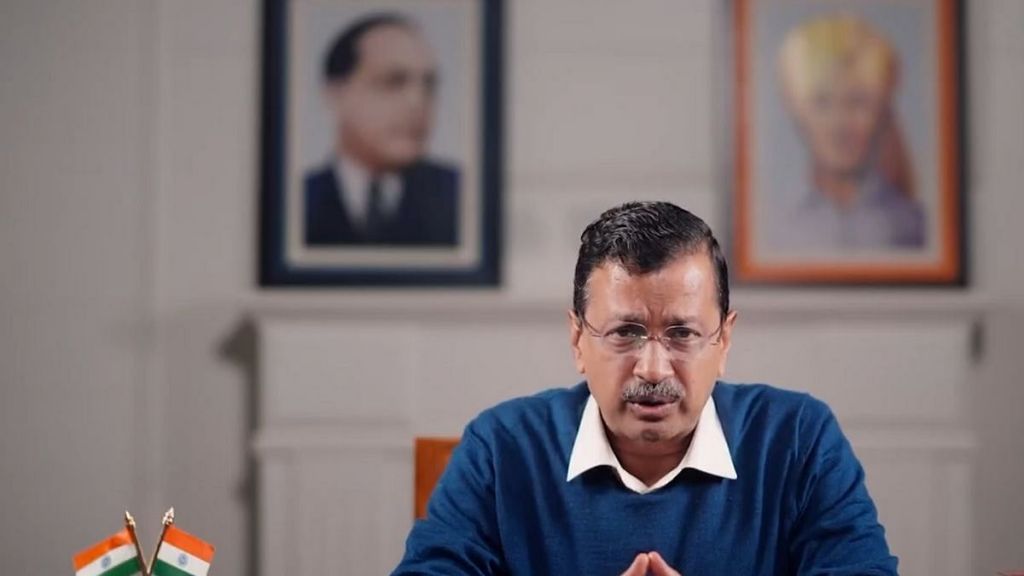
New Delhi: A majority of the exit polls on Thursday, February 6, predicted massive gains for the BJP, stating it could edge out the Aam Aadmi Party (AAP) in the 2025 Delhi Assembly election. If trends are to be believed, the BJP may return to power in the national capital nearly after three decades.
Here are five key reasons why AAP national convenor Arvind Kejriwal might not make it this term:
1. Kejriwal's Yamuna Poisoning Claims
Arvind Kejriwal’s claims of Yamuna poisoning could hurt his chances in the 2025 Delhi Assembly elections. Despite his repeated promises to clean the Yamuna, the river remains heavily polluted. AAP's 2015 manifesto had also committed to 100% sewage treatment and cleaning the river, but instead of taking action, Kejriwal and AAP found themselves caught in a political dispute with the BJP over the pollution.
This escalated with Kejriwal's accusation that the BJP-led Haryana government was poisoning the Yamuna to disrupt Delhi’s water supply ahead of elections.
To dismiss Kejriwal's claims Haryana's Chief Minister Nayab Singh Saini even drank a few sips of Yamuna water, criticizing the AAP and asserting that there was no poison in the water flowing from his state to Delhi.
Earlier, the Election Commission (EC) issued two notices to Kejriwal, stating that his allegations could promote disharmony, asking him to present evidence to support his claims.
Ahead of the Delhi Assembly polls, Haryana police booked Kejriwal under various provisions of the Bharatiya Nyaya Sanhita (BNS) Act. An FIR was also registered against the former Delhi CM, based on a complaint by Shahbad resident Jagmohan Manchanda.
2. Kejriwal's 'Sheesh Mahal' Jibe
The 'Sheesh Mahal' controversy could significantly damage Arvind Kejriwal’s chances in upcoming assembly elections. The BJP has used this issue to attack his leadership, making it a central focus of their campaign.
The controversy stems from the renovation of Kejriwal's erstwhile official residence, which was initially deemed necessary due to structural issues discovered during the Covid-19 pandemic. However, the excessive spending on the renovations, including adding a new storey, sparked accusations of mismanagement and insensitivity, especially during a time when the public was grappling with the pandemic.
The issue risks overshadowing the AAP leader's achievements and fueling voter frustration, potentially harming his chances in the upcoming election.
3. The Liquor Scam Controversy
Arvind Kejriwal's involvement in the liquor policy scam could also hurt his chances in the 2025 Delhi Assembly elections. His arrest in March, where he was accused of being the "kingpin" in a kickback scheme, has raised doubts about his integrity. The ongoing legal battles and the controversy surrounding the policy could overshadow his achievements and damage his credibility. The controversy could potentially alienate voters and weaken his support base.
4. Heavyweights Against Kejriwal
Kejriwal is contesting the New Delhi assembly seat against heavyweights like the BJP's Parvesh Verma and Congress' Sandeep Dikshit. While Verma is the son of former Delhi CM Sahib Singh Verma, Dikshit is the son of Delhi's former and the longest-serving CM Shiela Dikshit.
Verma has criticized Kejriwal's inability to deliver on key promises, questioning his leadership and governance. Meanwhile, Dikshit, although quieter in his campaign, continues to pose a challenge, aiming to leverage voter dissatisfaction with the current administration.
5. False Promises & Lack of Credibility
Kejriwal's false promises have eroded his credibility with voters. While AAP first emerged as an alternative to Congress and BJP in 2013, it has failed to deliver on key promises. In 2015, AAP formed a government on promises of free electricity, water, and improved education, but aside from some freebies, development remained limited.
Despite showcasing Mohalla Clinics and improved schools, opposition parties, especially the BJP, countered these claims, accusing AAP of dysfunction and manipulation. Promises like piped water connections and pollution reduction were not fulfilled, and the 2023 "Rozgar Budget" also failed to deliver its job creation pledge.
Additionally, Kejriwal’s 2019 promise of full statehood for Delhi has not been realized, with Delhi’s powers further reduced under a standoff with the Lieutenant Governor. After two terms, voters may feel it's time to move on, as AAP's unkept promises have left them disillusioned.